Does coffee taste good with salt? hand coffee with salt flavor coffee with salt is wonderful.
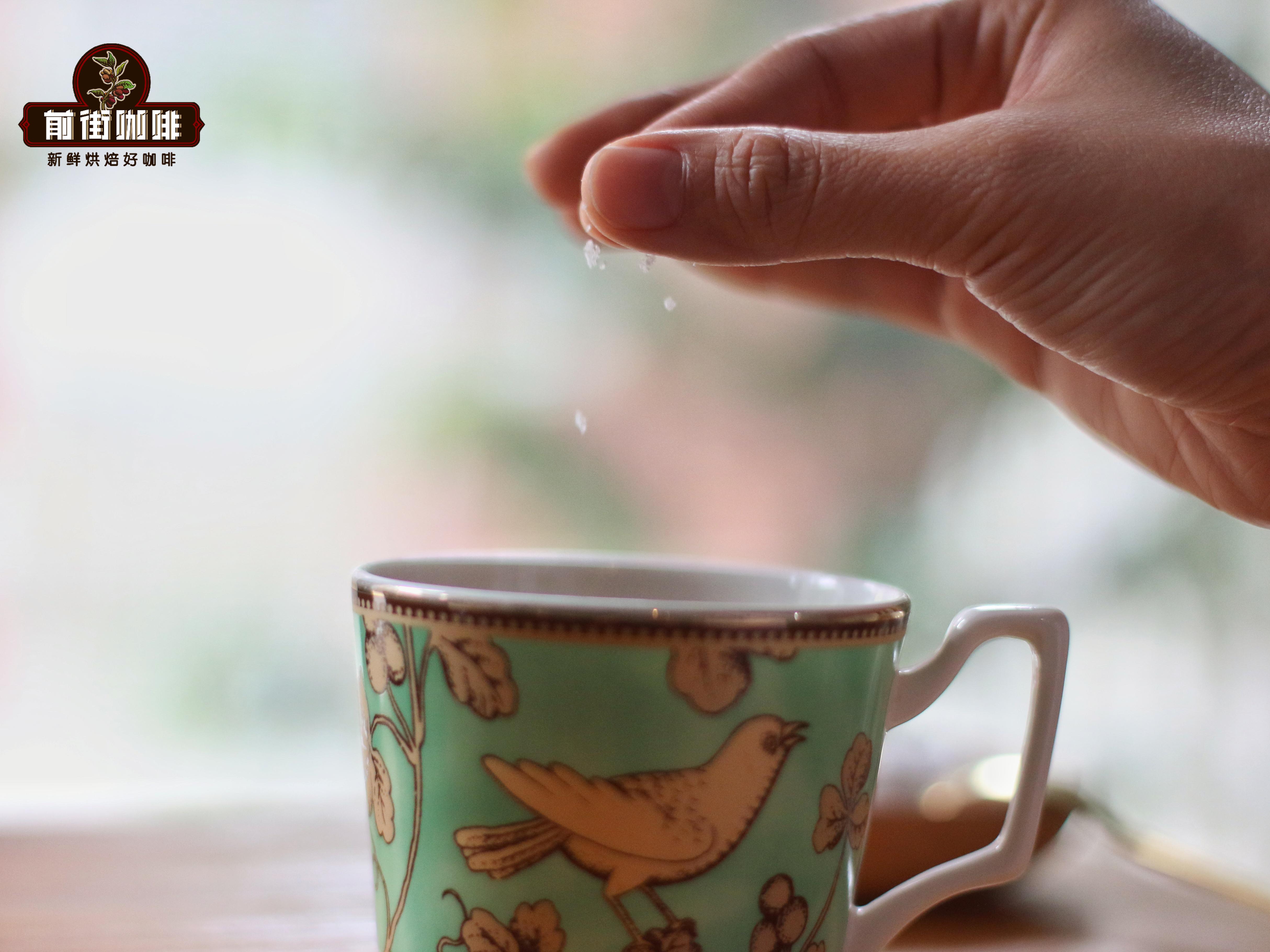
In daily life, salt is one of the indispensable condiments to enhance the flavor and flavor of food. If salt is added to the coffee, what kind of wonderful use will it play?
The operation of adding salt to coffee is not "bizarre" behavior. In fact, there is a tradition of adding salt to coffee in many areas. In addition to the interesting divination culture, the ancient and mysterious Turkish coffee is also used in the custom of talking about marriage. When the man proposes to the woman's house, the woman will put salt (or black pepper or ginger powder) in the coffee to test the man's character. If the man does not look embarrassed after drinking it, he will be considered a good marriage.
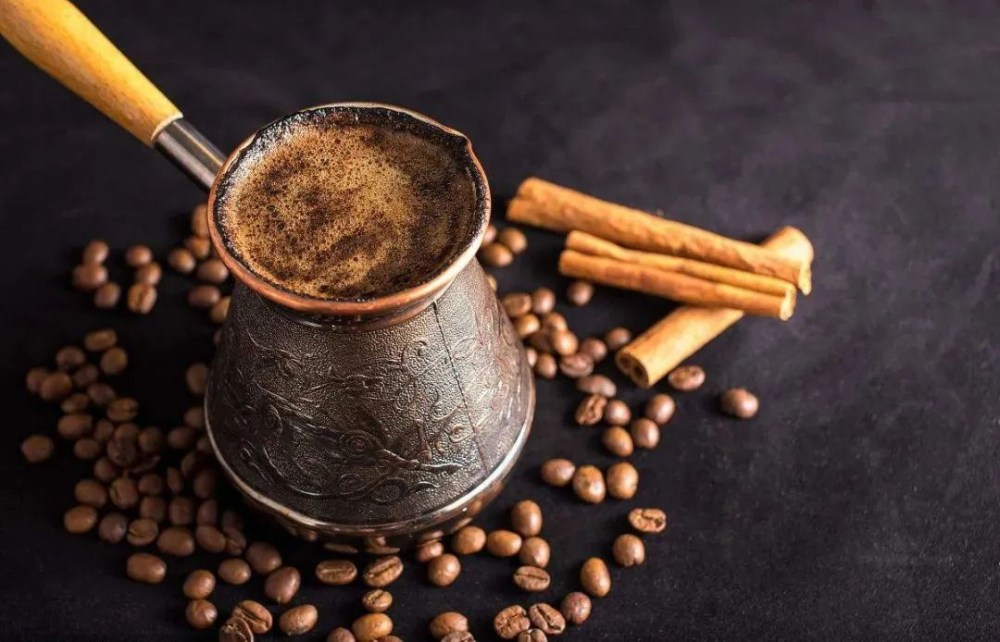
Coffee became popular in the coastal areas of Europe in the 19th century, and coffee at that time could only be described as strong, bitter and astringent. The quality of the coffee bean itself is not high. People roast it to a scorched black state, grind it into a fine powder, then pour it into a pot, boil it with water, and drink it directly. In order to ease the bitterness that stimulates the taste buds, they came up with the idea of adding seasoning to their coffee, and salt is one of the seasonings that every household always has. At that time, sugar was a high-priced luxury, which only the aristocracy could afford. It is found that after adding salt, the bitter taste of the coffee is "gone" and replaced by the sweet smell of the coffee. To this day, there are still areas where coffee is salted. For example, people in North Scandinavia put in the right amount of salt in the process of making coffee. So how does salt "reduce" the bitterness in coffee?
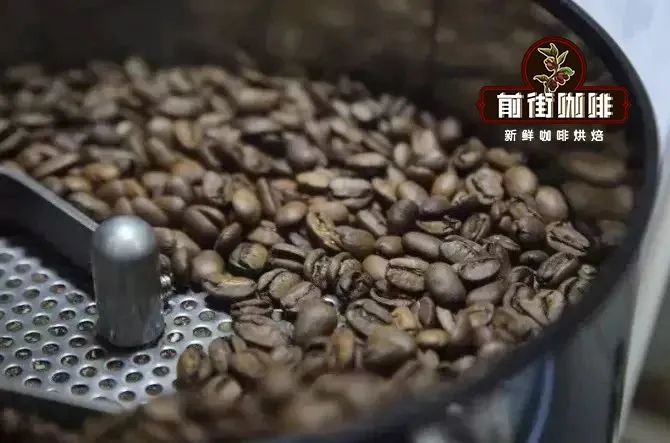
During the roasting process of coffee, after complex decomposition and polymerization, a large number of chemical components are derived at high temperature, in which chlorogenic acid lactone and phenyllindane are the main sources of bitterness. The bitter taste of light roasted coffee comes from chlorogenic acid lactone, while deep roasted coffee is more caused by the lasting bitterness of phenyl lindane. Of course, the bitterness of coffee will also change with our extraction, often due to too high water temperature, too fine grinding, too long soaking time, too low proportion of powder. When we eat some bitter food, the taste buds release calcium ions, and then send "bitter" signals to the brain, activating receptors that perceive bitterness. When salt is added, the sodium ion activates and binds to the salt receptors in the taste, inhibiting our perception of bitterness. The addition of sodium ions mainly allows our senses to increase the perception of other flavors, so as to achieve the effect of balancing taste. In other words, the bitterness doesn't go away, but salt changes our taste, improves our sense of sweetness and other flavors, and "ignores" the bitterness in coffee.
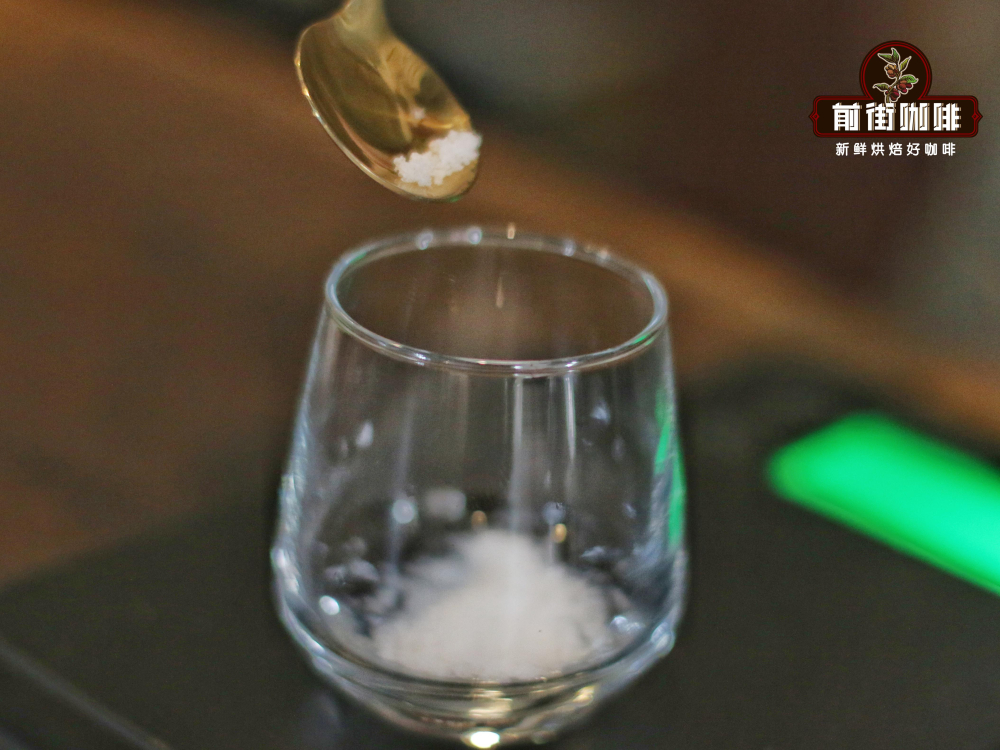
The role of salt is to set off the flavor, not to "dominate the host". As mentioned in many recipes: the right amount of salt. There is no clear standard for this "moderate amount", because everyone has different sensitivity to bitterness, and the amount of salt should be added according to the individual's perception of the bitter taste of coffee. The daily use of fine salinity is so high that it is difficult to control the proportion by adding it directly. Qianjie tried to mix salt and water into a solution with a fixed salt concentration at a ratio of 20%. For every 0.1 g of salt, that is, 0.02 g of salt, a small amount was added to the extracted coffee solution many times. The bitter medium and deep roasted golden Manning coffee is selected here in Qianjie. The extraction rate was improved by changing the brewing parameters: 15g coffee powder, powder / water ratio 1:13, water temperature 91 °C, grindness (Chinese standard No. 20 sieve pass rate 80%) three-stage water injection
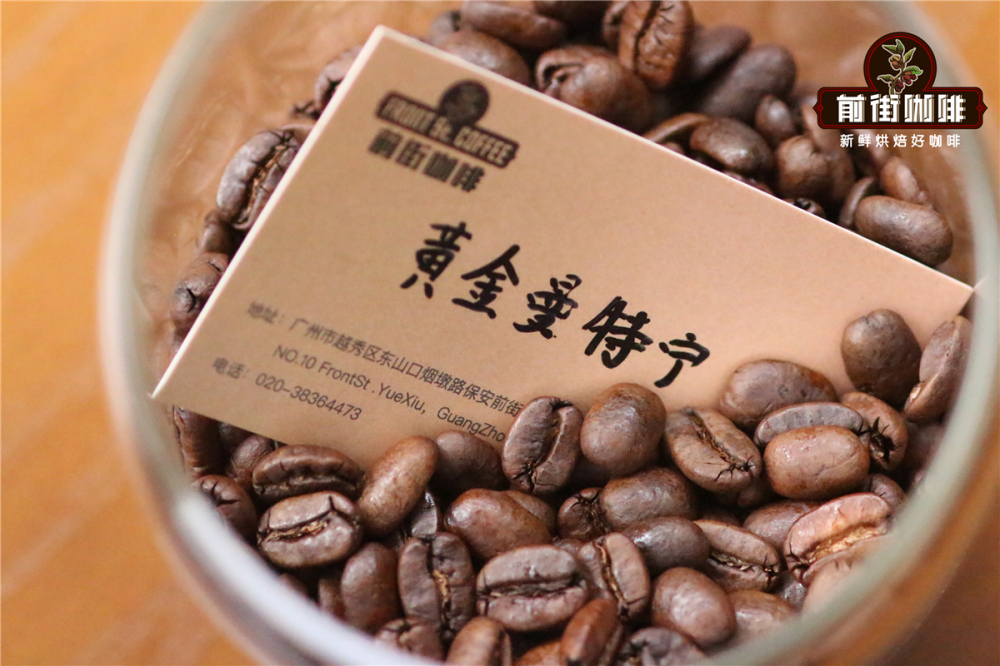
The original coffee liquid is very high concentration, the entrance has a strong sense of bitterness, and the tail rhyme has an obvious mixed flavor. Qianjie will pour 50 grams of coffee solution into three coffee cups, add 0.1 grams to the cup to taste and compare.
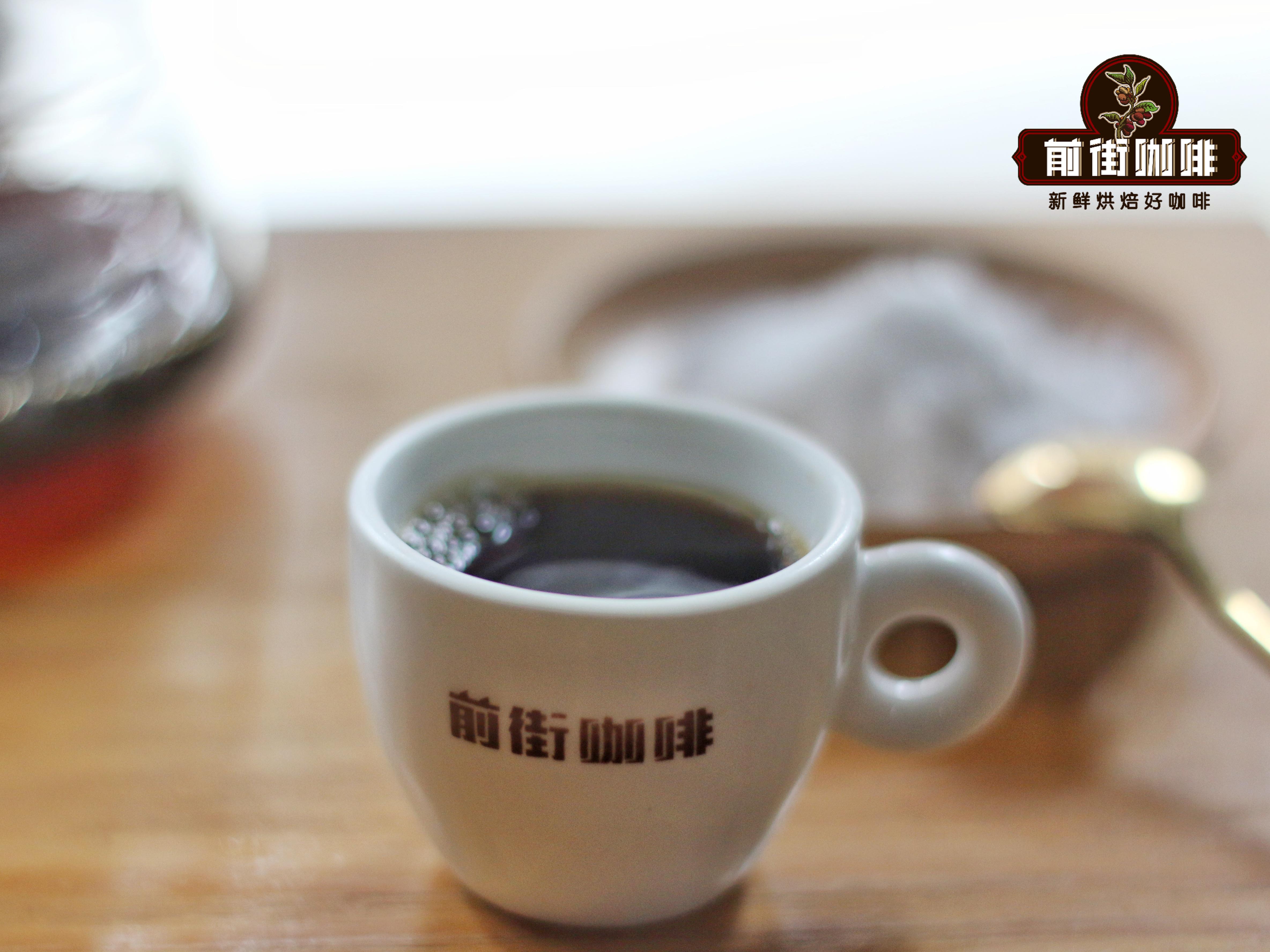
When 0.1 g of 20% saline was added, the bitterness decreased slightly, but still stimulated the taste buds. Qianjie added 0.2 grams of salt water to the original solution of the second cup of coffee, and it tasted balanced, obviously less bitter and easier to taste. When 0.3 grams of salt water was added to the third cup, the bitterness of the coffee was weakened, but the salty taste was prominent, destroying the sense of balance in the cup. So the addition of 0.02 grams of salt can indeed save this pot of bitter "rollover coffee", but the control of salt here is more worthy of our attention. Too little salt has no obvious effect; too much salt tends to mask the flavor of coffee. In addition, the original intention of adding salt is to reduce the negative bitterness in coffee, and then improve the flavor. When the coffee itself has a rich aroma, under proper brewing, it is balanced between sweet and sour, and there is no unpleasant feeling such as thick, bitter and astringent, if salt is added to it, it is likely to cause more inharmonious taste of the coffee in the cup.
Professional coffee knowledge exchange more coffee bean information please follow the coffee workshop (Wechat official account cafe_style)
For more boutique coffee beans, please add private Qianjie coffee on Wechat. WeChat account: qjcoffeex
Important Notice :
前街咖啡 FrontStreet Coffee has moved to new addredd:
FrontStreet Coffee Address: 315,Donghua East Road,GuangZhou
Tel:020 38364473
- Prev
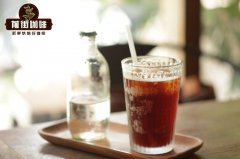
How to make sparkling American iced coffee? What is the flavor of black gold American coffee? Is it good?
Relieving heat and relieving heat has always been a necessary skill for pretty boys in Guangzhou in summer. Chilled watermelons, chilled colas and old popsicles are essential. For the handsome old man who likes soda and coffee, the combination of the two is the perfect choice. The materials and methods of bubbling American iced coffee are very simple, only ice cubes, soda (salt soda) and concentrated coffee need to be prepared.
- Next

What exactly does the golden cup extraction of coffee mean?
The word "Golden Cup extraction" is often quoted in the articles in Qianjie, and some friends will leave messages in the background, asking what this "Golden Cup extraction" means. Gold cup extraction, the so-called gold cup extraction, refers to the concentration and extraction rate of a cup of coffee as a reference to determine whether the cup of coffee has been fully extracted.
Related
- How did the Salvadoran coffee industry develop in Central America?
- What exactly does the golden cup extraction of coffee mean?
- The Origin of Coffee flower
- [2023 Starbucks World Earth Day] there are more meaningful things besides free Starbucks coffee!
- What kind of coffee is there in Spain? 9 Flavors of Spanish Coffee
- Aromatic African coffee| Kenya's coffee culture and historical production area
- Liberica Coffee Bean knowledge: the characteristics of Liberian Coffee beans of the three original species of Coffee beans
- The origin and formula of Spanish latte introduces the taste characteristics of Bombon coffee in Valencia, Spain.
- How to adjust the solution of over-extracted coffee
- What is the tasting period of coffee beans? What is the period of coffee and beans? How should coffee wake up and raise beans?

